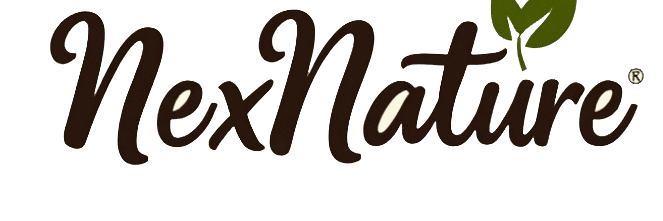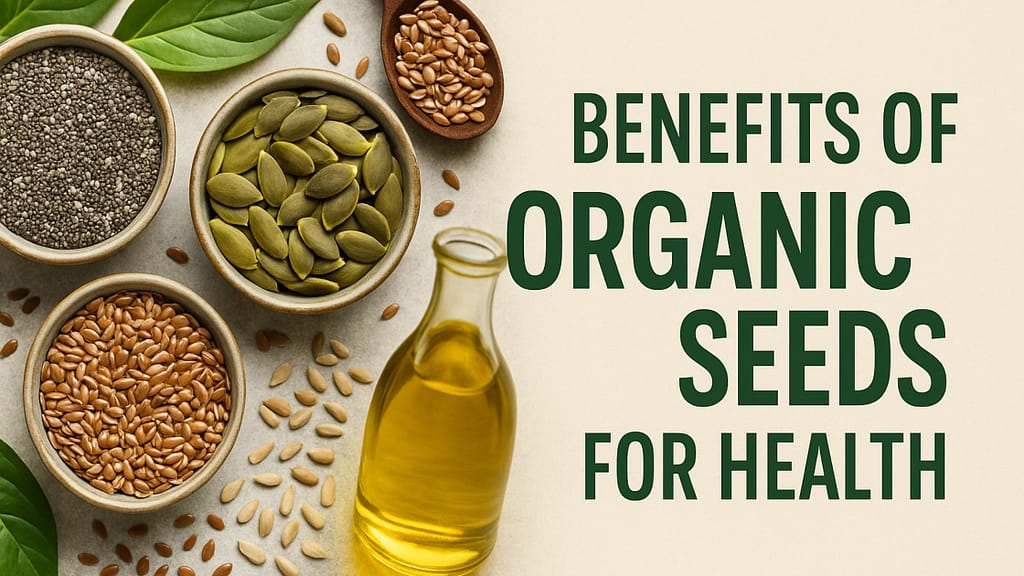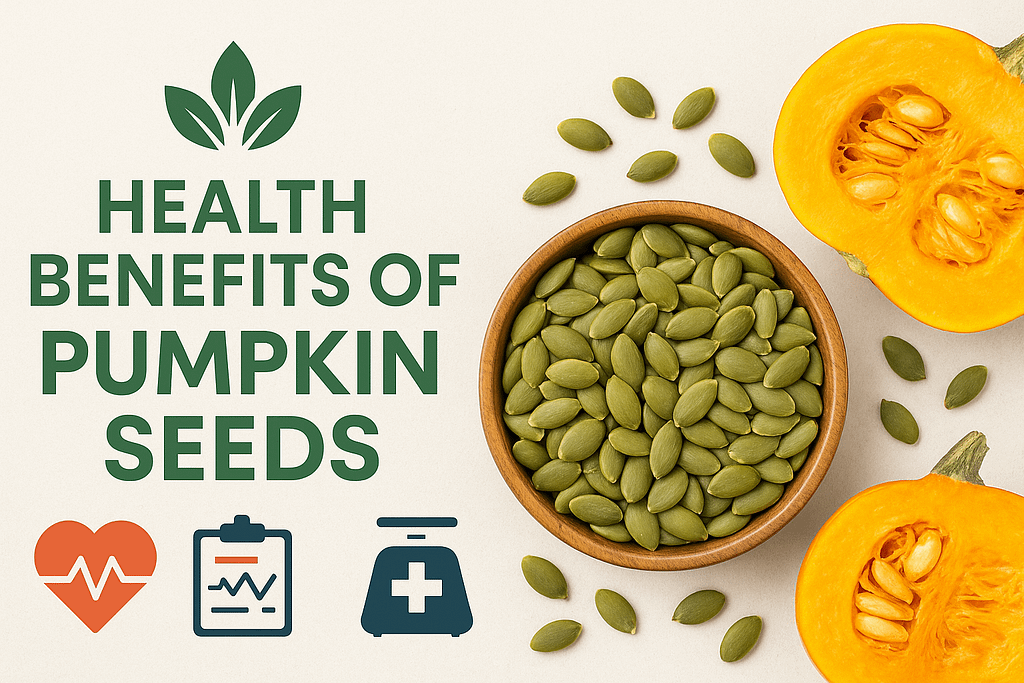Hey there! When you have ever cut yourself a fat piece of muskmelon or watermelon you must have thrown the seeds away, without another question. However, what, I asked, if I were to inform you that those small seeds contain no small nutrient–and that also, there are certain things to be avoided. Later in this article, we are going to explore in-depth about the health benefits of muskmelon and watermelon seeds and side effects, supported by science. At the end, you will understand how to use them safely, what it will bring benefits, and who should be precautious.
Nutritional Composition / Chemical Profile
Now we can begin by examining the composition of these seeds–since we cannot start to know the nutritional value of watermelon seeds and muskmelon seeds without knowing what they are composed of.
Watermelon Seeds
- A 2025 review noted that watermelon seeds have approximately 48-50 percent crude fat, 18-30 percent protein, 10-18 percent carbohydrates, approximately 2.5-49 percent dietary fiber, and ash, moisture etc.
- These seeds have many phenolic acids (gallic, caffeic, sinapic etc.) and flavonoid (quercetin, luteolin etc.) bioactive compounds that have antioxidant and anti-inflammatory effects.
- Minerals: potassium is one of the most common, and among the others there are iron, zinc, magnesium, phosphorus, calcium etc.
Muskmelon Seeds
- The profile of muskmelon ( Cucumis melo ) seeds is also rather good: good quality proteins, mono- and polyunsaturated fats, fiber, vitamins, minerals and other bioactive compounds.
- They have significant amino acids (tyrosine, valine, phenylalanine, etc.), carotenoids and antioxidant like gallic acid, luteolin etc.
In a word: both seeds contain protein, healthy fats, fiber, vitamins, and minerals and bioactive antioxidants. Most of their health benefits are based on them.
Health Benefits
So now we will discuss what these nutrients do- the actual health benefits of muskmelon and watermelon seeds and health side effects you need to know. (Side effects will be discussed later.)
1. Antioxidant & Anti-Inflammatory Effects
Seeds contain lots of phenolic compounds, flavonoids and antioxidants which neutralize free radicals and thereby diminish oxidative stress. Indicatively, the watermelon seeds have been reported to contain sinapic acid, quercetin among others which are known antioxidants.
The muskmelon seeds are also useful: such substances as luteolin, gallic acid, etc. prevent inflammation. This is of particular use in chronic illnesses such as heart disease or metabolic syndrome.
2. Cardiovascular Health
Watermelon seeds contain healthy fats (mono- and polyunsaturated) which decreases LDL (bad cholesterol) level and enhances the state of blood lipids. The watermelon seeds also contain potassium which helps in maintaining heart activity since it regulates blood pressure.
Muskmelon advantages: it is already known that the fruit flesh contains a high amount of vitamin A, C, potassium, etc, which are beneficial to the heart. Adding seeds means more protein, healthy fats and fiber-factors which have been associated with less risk of cardiovascular problems.
3. Digestive Health
The two seeds are also good sources of dietary fiber (particularly insoluble), which contributes to bowel regularity, prevents constipation, and in general, gut health.
Seeds also offer texture and act as a mild form of natural scraper to the gut- in addition, bioactives can stimulate beneficial gut fauna.
4. Blood Sugar and Metabolic Regulation
There are research findings that watermelon seeds could assist in maintaining blood sugar perhaps due to their fiber and protein content. Although additional human studies are required, they have a good nutritional profile and promise to be useful in metabolic support.
The muskmelon fruit is not very caloric, contains water, and a little fiber; the seeds supplement it.
5. Immune Support
Immune functions are helped by vitamins A, C and zinc and iron present in these seeds. Inflammation is minimized by antioxidant compounds and this consequently enables the immune system to perform optimally.
6. Skin, Hair & Beauty
Vitamin E, antioxidants, healthy fats- these will aid in skin elasticity, lessening the oxidative harm, stimulating collagen development. Glow Sometimes, muskmelon seeds are helpful in this respect. Proteins and minerals are also beneficial to hair.
7. Bone Health
Calcium, magnesium, phosphorus in watermelon and muskmelon seeds are known to promote bone density and strength and being anti-osteoporotic.
8. Other Potential Benefits
- There is research conducted on some animals indicating that watermelon seed meal (when eaten moderately) can possess anti-microbial effects.
- Seeds of the muskmelon were later utilized in the past centuries to treat wounds, lower cholesterol etc.
Side Effects / Risks / Who Should Be Cautious
Like most things that are healthy, there are exceptions. In this case, these are some of the things to be observed when eating muskmelon and watermelon seeds. Being aware of these will make you get the advantages without taking risks.
1. Digestive Discomfort & Overconsumption
- Excessive fiber and fat can lead to bloating, gaseousness or even diarrhea in case you start taking vast amounts of seeds.
- The amount of watermelon seeds is rich in fat (~48-50) and thus consuming a large amount of watermelon can also imply a lot of calories.
2. Anti-nutritional Factors
- Oxalates, phytates, tannins etc. are found in watermelon seeds. These may decrease the mineral uptake, e.g. iron, calcium.
- The same compounds (although not well studied) are also probably found in the muskmelon seeds.
- These anti-nutrients can be lowered through roasting / boiling. As an illustration, oxalate (~92-96) and phytate (~58-76) decreased in boiling-oven dried watermelon seeds.
3. Potential Toxicity with High Doses / Prolonged Use
- A 21-day rat experiment where watermelon seeds (2.5-5% in diet) were used reported some adverse outcomes: an increase in urea and creatinine (kidney biomarkers), distorted sperm morphology.
- So moderate intake is key.
4. Allergies & Sensitivities
- There might be allergic reactions of individual people to melon or to seeds; muskmelon was cross-reactive with pollen, etc.
- Also, young children also risk irritation of the throat or being choked by the whole and hard seeds.
5. Special Population Considerations
- Kidney disease: there is the possibility of potassium and oxalates being harmful.
- Pregnant / nursing women: seeds are generally safe in moderation but should always be checked with the medical man.
- Diabetics: the flesh of watermelon and muskmelon is high in sugar / it has high glycemic index though the seeds could be useful. Excessive consumption of meat may increase blood sugar levels. RSC publications
How to Eat / Use Seeds Properly
Desire to receive the advantages without the drawbacks? The following are feasible tips, usage, preparation and safe serving sizes.
- Processing / Preparation:
Antinutrient levels of watermelon seeds are considerably decreased in roasting, boiling + oven-drying. The seeds of the muskmelons can also be roasted or left after drying. - Forms of consumption:
Raw (when clean), roasted (sprinkled over salads, soups), ground (to powders of smoothies or health bars), seed oil (oil on watermelon seeds). - Suggested dosage / portion sizes:
No universally accepted human study that establishes precise dose that should be taken on a daily basis. However, as a rule, a small portion ([?]15-20 g) of roasted seeds or a table of powdered seeds is harmless to average adult. Increase gradually. - Recipes / ideas:
- Roasted and salted spicy watermelon seeds.
- Seed powder of muskmelon to be added to yogurt or smoothies.
- Add the seeds of muskmelon or watermelon to trail mixes.
- Dressing of watermelon seed oil.
- Storage tips:
Store seeds/seed oil in closed containers, not in the presence of moisture. Seeds that have been roasted are to be eaten earlier (few days) to retain the freshness.
Muskmelon & Watermelon Seeds vs Fruit Flesh
One can compare the contribution of the fruit flesh to the contribution of seeds. Fruit flesh (muskmelon in particular) contains a lot of water, vitamins A and C, is low in calories, is a thirst quencher- lots of summer, quenches thirst, antioxidants.
Seeds are on the other hand, more protein, fat, fiber, mineral, and concentrated bioactive compounds. Therefore, mixing flesh with seeds would be more nutritionally complete.
Frequently Asked Questions (FAQ)
Here are some likely questions you might have. I’ll answer them so you’re fully informed.
Q1: Are muskmelon & watermelon seeds good to eat every day?
A: Yes in moderation. Eating small amounts daily (handful of roasted or some seed powder) can give benefits. But large daily amounts may lead to digestive discomfort or strain kidneys, especially in susceptible people.
Q2: Can these seeds help with weight loss?
A: Possibly. The fiber, protein, and healthy fats help with satiety (feeling full), which may reduce overall calorie intake. Also, seeds themselves are calorie-dense, so portion control is critical.
Q3: Do watermelon seeds cause kidney stones?
A: Seeds like watermelon can have oxalates, which in high amounts might contribute to oxalate kidney stones in predisposed individuals. But cooking / roasting reduces oxalates greatly. If you have history of kidney stones, consult a doctor.
Q4: Can diabetics eat muskmelon & watermelon seeds & side effects?
A: Yes, the seeds themselves are lower in sugar and have fiber & protein, which help. The flesh of watermelon & muskmelon has more sugar; so portion control matters. Monitor blood sugar and consider glycemic load.
Q5: How many seeds per day are safe?
A: There’s no strict number established by human trial. But typical safe use would be about 15-20 grams of seeds (≈ a small handful) per day. Roasted or powdered seeds are easier to digest.
Q6: Is it better to eat seeds raw, roasted or boiled?
A: Roasting & boiling (especially followed by drying) reduce anti-nutrients (oxalates, phytates etc.), enhance digestibility, may improve flavor. Raw seeds have full nutrient content but also more anti-nutrients. Combining both types sometimes works well.
Conclusion
In conclusion, therefore, the health benefits of muskmelon and watermelon seeds and side effects are a reality and a potential. These seeds contain protein, healthy fats, fiber, minerals, vitamins and bioactive antioxidants. They are able to promote the heart, digestion, skin, immunity, etc. However, just as virtually all food, moderation and preparation is important. Watch the amount, possible allergy and anti nutrient issues.
f you feel like trying them, you can perhaps begin with roasting watermelon seeds or adding some muskmelon seed powder to your smoothies. And in case you have any illness such as kidney problems or diabetes, you should ask your medical practitioner.
Want to sample some of these seeds? Why not begin to-day–roast a few seeds of watermelon, a few of muskmelon, and shake them into your breakfast. I can also give you some simple recipes or meal plans to use muskmelon and watermelon seeds and then you can make them easily and enjoy them. Want me to share those?



